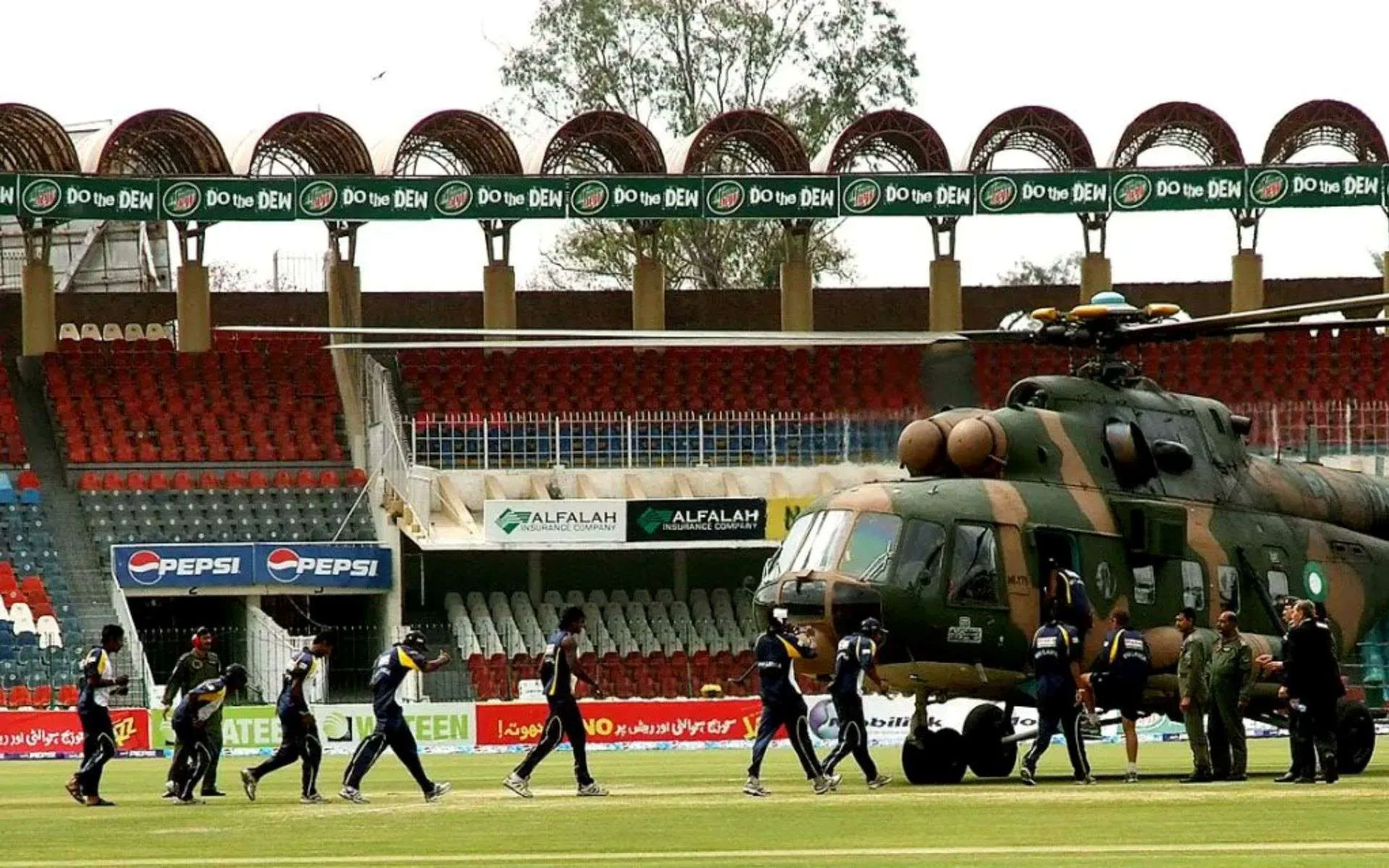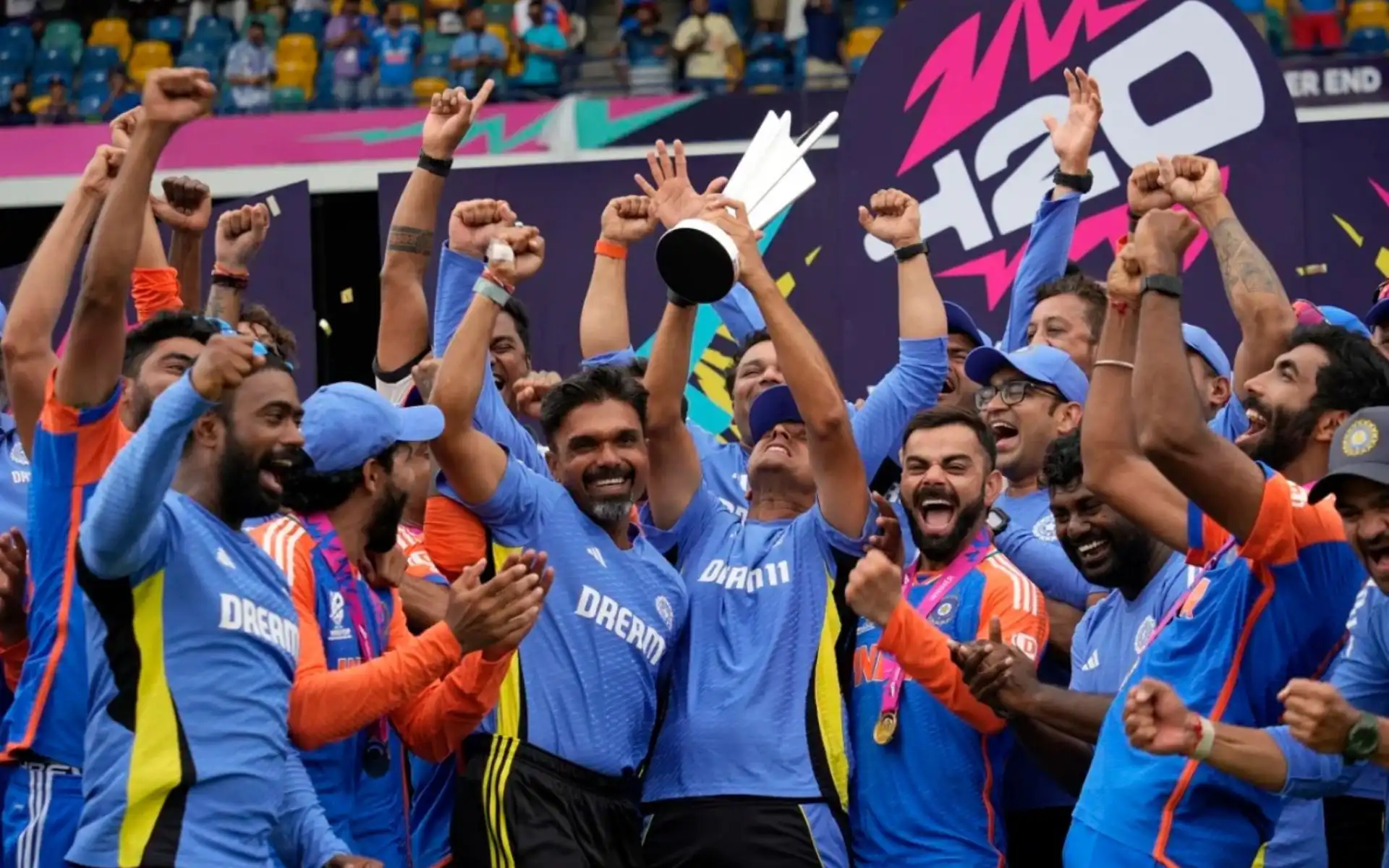 SL players being air-lifted after attacked in Pakistan (Twitter)
SL players being air-lifted after attacked in Pakistan (Twitter)
Cricket often finds itself caught between a rock and a hard place when external security concerns threaten the smooth conduct of the game.
Recently, the Sri Lankan team voiced concerns over safety amidst anti-immigrant riots in England, putting a spanner in the works for their training schedule and casting doubt over the upcoming series.
At the same time, political unrest in Bangladesh is throwing a curveball at the ICC's plans to host the Women's T20 World Cup 2024 there, with potential boycotts prompting a search for backup venues.
Such issues have led to the cancellation or boycott of several series throughout the sport's history. Here's an in-depth look at six significant instances where series were were cancelled or boycotted because of security reasons.
6. India's Tour of Pakistan, 2009
In the wake of the 2008 Mumbai terror attacks, the already fragile cricketing ties between India and Pakistan were further strained as they had to cancel their 2009 tour.
India's decision to cancel its 2009 tour to Pakistan was not just a response to immediate security concerns but also a reflection of the broader political climate.
The cancellation extended beyond mere cricketing schedules, affecting diplomatic relations and till date, the two nations don’t play bilateral cricket.
5. Australia in the 1996 World Cup
.jpg?type=mq) Sri Lanka defeated Australia in the 1996 World Cup final (Twitter)
Sri Lanka defeated Australia in the 1996 World Cup final (Twitter)
During the 1996 World Cup hosted in the Indian subcontinent, Australia refused to play their group matches in Sri Lanka amidst ongoing civil unrest and threats of terrorist activity.
The decision was heavily criticized, yet highlighted the dilemmas faced by cricketing nations when touring conflict-prone areas.
Ironically, the matches Australia forfeited helped pave the way for Sri Lanka's historic run to the title win.
4. New Zealand During the 2003 World Cup
The 2003 World Cup was fraught with security dilemmas, notably New Zealand's refusal to play in Kenya.
Citing threats from the terrorist group Boko Haram, New Zealand’s cricketing authorities decided against traveling to Nairobi, a decision that stirred considerable controversy and debate.
The ICC's refusal to relocate the match to a safer venue in South Africa meant that New Zealand forfeited the points to Kenya but they made sure that they boycott the game.
3. Australia's Tour to Bangladesh, 2015
Cricket Australia decided to cancel their 2015 tour of Bangladesh, a decision that was triggered by specific threats in the wake of the murder of an Italian aid worker in Dhaka, which was claimed by the Islamic State.
The situation was tense, with fears of targeted attacks on foreigners prompting a comprehensive review of security protocols.
Meetings between Cricket Australia’s security chief, local authorities, and diplomatic missions culminated in the decision to cancel the tour.
2. England's Tour to India, 2008
The 2008 Mumbai attacks had a profound impact on international cricket, particularly England's tour of India.
As the city was besieged by a coordinated terrorist onslaught, the England team was mid-tour, resulting in their immediate withdrawal to home soil.
The atmosphere was tense, and the uncertainty was evident. However, the tour resumed weeks later, fortified by heightened security measures and diplomatic assurances. But for the time being, the series remained cancelled.
1. International Cricket in Pakistan, 2009
.jpg?type=mq)
The attack on the Sri Lankan team in Lahore in March 2009 marked one of the darkest days in the history of international cricket.
Armed militants targeted the team bus, leading to the tragic deaths of several police officers and injuries to players.
This appalling act of terrorism not only caused immediate shock but also had long-lasting repercussions for cricket in Pakistan.
The country became a no-go zone for international cricket teams for nearly six years, severely affecting Pakistan's home fixtures and isolating it from the international cricket community.
To this day, many countries remain hesitant to tour Pakistan, as evidenced by the Indian team's ongoing reluctance to travel there for the Champions Trophy in 2025.

.jpg)




